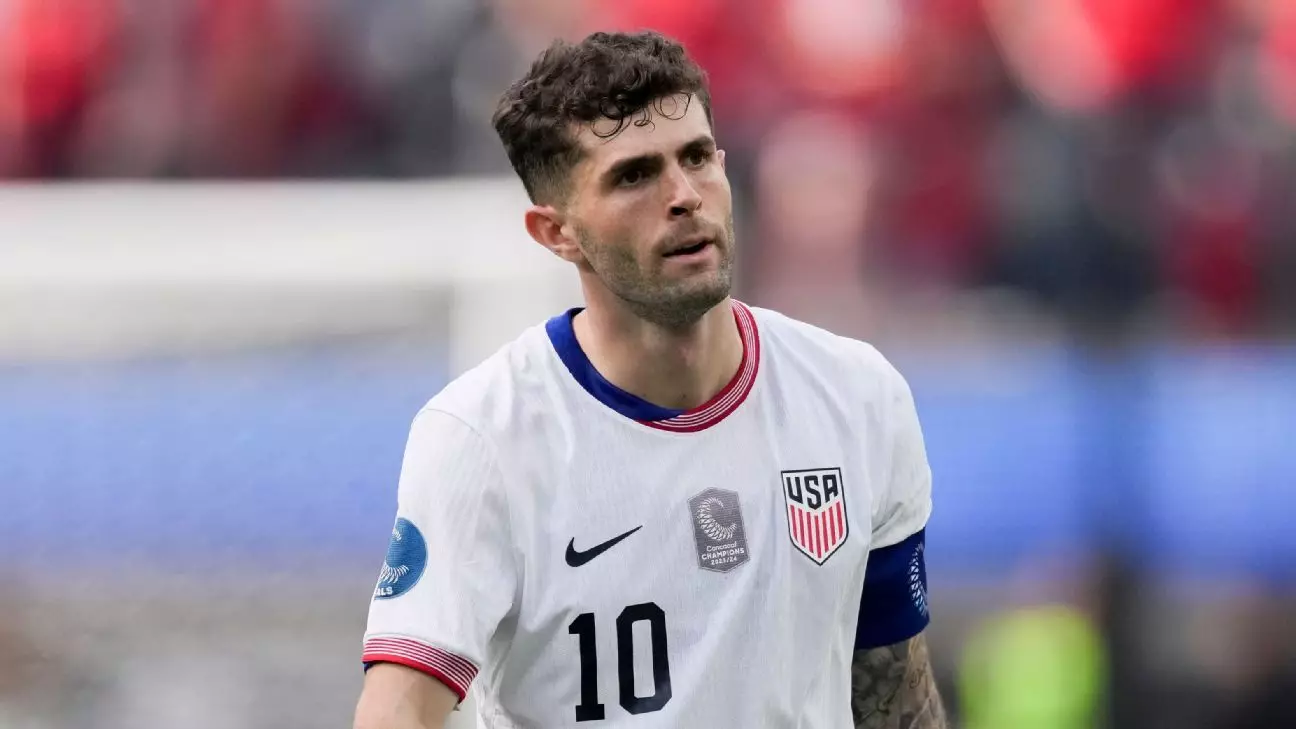The realm of professional sports often finds itself drenched in an unyielding pressure to perform, with national representation acting as the ultimate honor—or burden. Recently, U.S. soccer legend Landon Donovan voiced his discontent over Christian Pulisic’s choice to sit out the upcoming Gold Cup, indicating what he perceives as a disconnection from the deeply rooted sense of duty that comes with donning the national jersey. While Donovan’s impassioned comments resonate with the pride many felt for the stars of yesteryears, they also beg the question: how can we expect modern athletes to navigate the demanding landscapes of both their domestic clubs and national obligations?
Pulisic’s decision to prioritize rest after an arduous season with AC Milan illustrates the modern athlete’s multifaceted reality. Unlike previous generations, today’s players face an endless grind of high-stakes competitions, from domestic leagues to international tournaments. The relentless nature of the sport can take both a physical and mental toll, leading athletes like Pulisic to prioritize longevity and sustained performance over short-term international appearances.
Donovan’s Legacy and the Irony of Critique
Donovan’s commentary on Pulisic’s absence hinges heavily on his own storied career, where he notably participated in three World Cups and left an indelible mark on American soccer. However, this raises an ironic paradox: in 2012, Donovan himself opted for a sabbatical, a respite from the sport spurred by a period of personal and professional strain. It’s this same context of pressure that Mark Pulisic astutely invoked in his response—pointing out Donovan’s own need for time away from the sport during a demanding chapter of his life.
By sharing insights via ChatGPT, a technology that can facilitate deep, engaging conversations, Mark Pulisic highlighted the inherent complexity of professional athletics. Notably, athletes are not merely products of their craft; they are also individuals who experience fatigue, burnout, and a multitude of personal demands that the public often overlooks. Shouldn’t current players be afforded similar grace as they navigate their careers amidst countless commitments?
The Discussion around Sacrifice and Wellness
The tension surrounding Pulisic’s choice taps into a larger cultural narrative about the balance between sacrifice and self-care in professional sports. Critics, including the likes of Donovan and former U.S. player Alexi Lalas, argue that participation in significant tournaments like the Gold Cup is essential for team cohesion, especially with the World Cup on the horizon. Yet, the dialogue about what it means to sacrifice should also interrogate the question of mental and physical wellness.
For a player who has battled injuries and has faced pressures unique to a high-profile career, taking time off isn’t merely a matter of choice—it can be an imperative for health. The harsh reality is that soccer is increasingly recognized not just for its athleticism but for its demand on mental fortitude. Pulisic’s decision can be seen less as a failure to engage with national pride and more as a proactive step towards sustainable career longevity.
The Role of Fans and Media in Shaping Narratives
The media’s portrayal and fan reactions can both empower and undermine players, and it’s vital for stakeholders to acknowledge this dynamic. Donovan’s statements could be interpreted as a yearning for commitment, but they also risk overshadowing the nuance involved in personal choice. How often do we hold a mirror to the expectations placed on athletes, especially when they diverge from conventional paths? Pulisic’s decision comes at a time when self-care is gaining recognition in professional sports, yet the antiquated notions of loyalty and sacrifice often linger like a shadow over player autonomy.
The dialogue around sacrifice in sports is not merely about the physical act of playing; it also encompasses the mental and emotional landscape that players navigate. As we stand at the crossroads of tradition and modernity in sports, perhaps what is most required is a compassionate understanding. The evolution of the game should invite us not only to celebrate achievements but also to respect the choices born from a place of necessity rather than obligation. It is these choices that may ultimately foster a healthier, happier generation of athletes who can perform at their best—both for themselves and their country.

